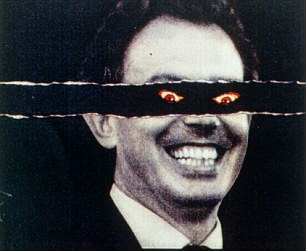Martin Jaques writing in the Guardian says the Left is in a bad way:
The reason for the collapse of the left could not be clearer – or more fundamental. Its parameters, its confidence, its mode of organisation, its narrative, its very being, depended on the existence of the labour movement. And it is the latter that has effectively disappeared.
I think that’s largely right. There are remnants of which might be loosely termed the old Left which survive on isolated islands lapped by a sea of popular disinterest but these islands are either very small socialist organisations with little in the way of public support or their pale echoes in the universities and think tanks.
Either way the Left doesn’t seem to me to have a coherent message which strikes a popular chord. There is no economic challenge to the status quo which anyone takes seriously, nor is there any confidence that the future belongs to anything other than slightly different versions of what we’ve already got. No doubt people can find exceptions to these statements but anyone who grew up in the 1980’s will recognise that even that decade – at the time considered a disastrous one for the Left – was in fact a golden age compared to now. Yes Thatcherism was hegemonic (to use a couple of retro words Jacques might recognise) but there were alternative ways of thinking which people took seriously. These came from the Left. That’s not the case now.
I have to part company with Jacques when he produces his rusty old Lefty cookie cutter to address the current political situation though:
The left may have been marginalised – but the imperatives that gave rise to it and which it sought to address are now more glaring and insistent than at any time since the second world war. Inequality, at both a global and national level, has been steadily increasing, an integral product of the neoliberal model of globalisation that has dominated the world order over the last quarter-century. And the consequences of this inequality have played a crucial role in helping to shape the present phase of global politics, namely Arab Muslim grievance, terrorism and American unilateralism.
I have a lot of trouble with any analysis which could be read as “terrorism is caused by neo-liberalism”. To fail to notice that Islamists who use terrorism as a strategy are no poorer than most contemporary Africans – who have not resorted to terrorism – is proof of intellectual laziness or dishonesty. And how does Jacques explain away the huge economic advances East Asia is making. After all haven’t Japan, China and the Tiger economies of the Pacific Rim been operating in the same neo liberal economic environment which apparantly made terrorists out of others ?
Blaming inequality for all the world’s ills just doesn’t stand up as a credible explanation of the contemporary political situation and I suspect Jacques knows it but can’t bear – for reasons other than logical ones – to draw the right conclusions.
The fact is the important ideological battle in the world at the moment is between two competing sets of ideals. In one corner we have the post Eighteenth Century camp and in the other we have the pre Enlightenment forces. It’s been like this for a while but the wild card of organised Islamist terrorism and the spread of nuclear technology have thrown things into sharper relief.
If you are a member of the first camp you are in favour of the rule of (manmade) law, secularism, civil society, equality and economic progress. If you’re in the latter camp then you set little store on these ideals and place more emphasis on revealed truth, rule by those who consider themselves closer to God than the people they govern, and think matters of the spirit are more important than vulgar materialism.
It’s not a question of racism or Eurocentrism either. It’s only recently Eighteenth Century ideals have made strong progress in this part of the world. Bishops in the legislature as of right and official state cults are hardly practices lost in the mists of time in the UK, even if such practices are deservedly under attack.
The problem of Islamist terrorism does not fit into Left/Right dichotomies, nor can it be tackled by applying badly fitting pro-forma arguments. The phenomenon – which may be the central political issue for the next few decades at least – needs addressing honestly.
If the Left is to have any relevence at all over the coming years much will depend on how it analyses and relates to pre-Enlightenment ideas. In the era when religious fundamentalists who covet weapon of mass destruction are a reality it’s not enough to pretend they don’t exist, pretend they’re not a threat, or to try to wish them away as creations of neo-liberalism which will vanish if only we rearrange our economic system in a certain way.
If the Left chooses any of these options it will mean passing the Right the baton of the Enlightenment. Once that has been done the Left will finally have no reason to exist and will morph into something else entirely.


